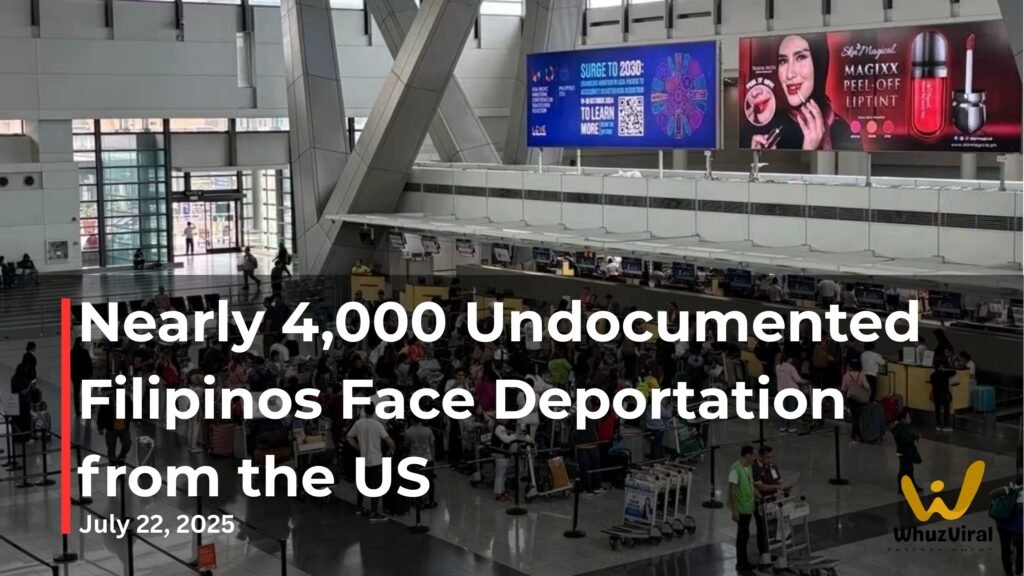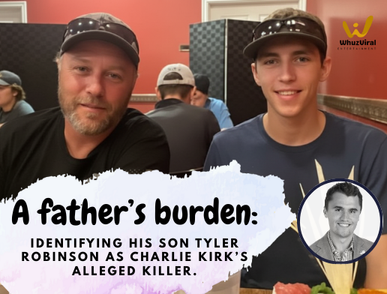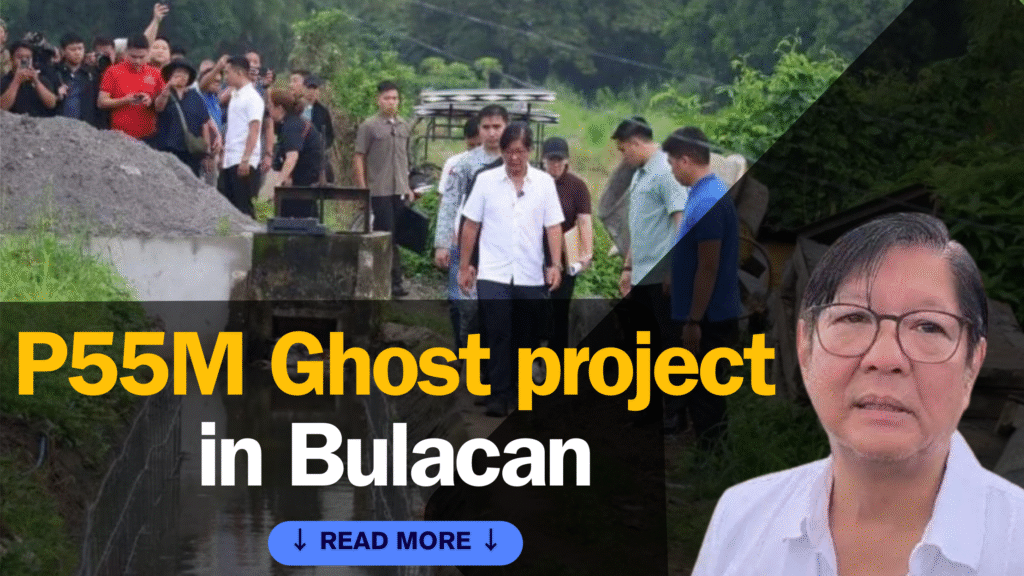
🧭 Introduction: Why This Matters to Every OFW
As an OFW currently teaching English in Thailand, this news is personal.
The report of 3,772 undocumented Filipinos facing deportation from the United States isn’t just alarming—it’s heartbreaking. These are real people with families, jobs, and dreams—now forced to return home under difficult circumstances.
We OFWs share a common hope: to uplift our families. But we also carry a common risk—the uncertain future that comes with being a migrant. Whether legal or undocumented, we walk a tightrope every day.
Table of Contents
🛂 Nearly 4,000 Undocumented Filipinos to be Deported
According to the US Immigration and Customs Enforcement (ICE), nearly 3,772 Filipinos without proper documentation are set to be deported. This decision comes amid renewed US efforts to tighten immigration controls.
Philippine Ambassador to the US Jose Manuel Romualdez confirmed the figures and added that both President Marcos and US President Donald Trump will no longer deliberate on immigration policy as prior diplomatic talks have occurred with the Department of Homeland Security (DHS).
This mass deportation will impact thousands of families and is part of a broader US initiative to reduce illegal migration across all nationalities.
🌍 The OFW Perspective: A Shared Struggle
As an OFW myself, I remember the anxiety I felt during my first visa renewal here in Thailand. The uncertainty, the paperwork, and the pressure—it’s overwhelming.
Imagine living in the US undocumented for years. No ID, no health insurance, no job security, and now, the looming threat of being sent home. Many of these kababayans have built lives, families, and careers in America, only to face sudden removal.
🔒 Why Legal Status Matters
Legal migration protects your:
- Human rights
- Job security
- Access to public services
- Ability to travel and return home safely
In contrast, undocumented migrants face exploitation, limited access to healthcare, poor working conditions, and mental stress from living in the shadows.
Understanding the US Immigration Crackdown
The current US administration has reinstated a “zero tolerance” stance on illegal immigration. This includes:
- Strict enforcement of deportation orders
- Reduced protections for undocumented migrants
- Accelerated court hearings for removals
While this policy aims to protect borders, it has left thousands of hardworking, undocumented Filipinos without recourse.
🛡️ What OFWs Can Do Now
🔹 1. Encourage Legal Routes Only
If you have relatives or friends considering illegal migration to the US, help them understand the risks. Emphasize legal employment and immigration channels.
🔹 2. Stay Informed
As an OFW, stay updated on immigration policies. Bookmark embassy pages, attend orientations, and follow legitimate news sources.
🔹 3. Support Deportees’ Reintegration
Welcome and assist deported kababayans. They may return without savings, homes, or support systems. Help them reintegrate through local livelihood programs or psychological support.

🧭 Migration Guide: Avoiding the Pitfalls
✅ Checklist Before Working Abroad
- Go through POEA-accredited agencies
- Get legal documentation (passport, visa, contract)
- Attend pre-departure orientation seminars (PDOS)
- Understand your host country’s labor and immigration laws
- Secure emergency contacts and embassy details
Remember: a legal path may take longer but ensures a safer, more stable life abroad.
🧑🤝🧑 Human Stories Behind the Numbers
A 50-year-old undocumented Filipina in New Jersey, who has lived in the US for over 15 years, now faces deportation. She raised her children there, who are US citizens—but she never had papers herself.
Another young Filipino in California overstayed his visa by just six months. He was detained and is now in ICE custody, awaiting removal.
These aren’t just news headlines. These are lives, dreams, and families torn apart.
📣 Call to Action: Support and Education
We need a collective response:
- Government agencies must ensure fair reintegration
- Media must share humanized stories, not just statistics
- Filipinos abroad must educate and protect one another
Let’s build a global OFW community rooted in empathy, support, and legal empowerment.
❓ Frequently Asked Questions (FAQ)
❓ Why are Filipinos being deported from the US?
Filipinos without legal immigration status (undocumented) are being deported as part of the US government’s strict enforcement of immigration laws under ICE.
❓ Can deported Filipinos return to the US?
Usually, a deportation order includes a ban of 5–10 years depending on the case. Re-entry is only possible through waivers or appeals.
❓ What help is available for deported OFWs?
The Philippine Overseas Labor Office (POLO) and Overseas Workers Welfare Administration (OWWA) offer reintegration and livelihood support, though availability varies.
❓ How can OFWs avoid illegal recruitment or visa issues?
Always go through POEA-accredited recruiters, attend PDOS, and verify your visa’s legality through DOLE and DFA.
🧩 Conclusion
This story is a painful reminder that the Filipino dream of a better life abroad must be built on a strong foundation—legality, safety, and dignity.
As an OFW teacher in Thailand, I speak not from judgment, but from shared struggle. Let’s work together to create a better path for future generations of migrant workers.
The ICC’s Charges Against Rodrigo Duterte
Introduction: When Domestic Power Meets International Justice On a humid September morning in 2025, news…
A Father’s Burden: Turning in His Own Son, Tyler Robinson, in Charlie Kirk Case
Nine days ago, lives changed forever on the campus of Utah Valley University. A public…
Groundbreaking “Third Nostril Surgery” Saves 19-Year-Old from Deadly Spinal Tumor
When medical experts call something “inoperable,” most patients feel their hope collapsing. Yet, medical history…
🚨 Ghost Flood Control Project in Bulacan: Marcos Orders Blacklist and Legal Action Against Contractor
Video: President Ferdinand “Bongbong” Marcos Jr. inspects the alleged ₱55-million “ghost” reinforced concrete river wall…
China Drone That Flies and Swims: 7 Stunning Facts About the Shape-Shifting SeaDuck
In a coastal testing facility near Shandong, China, a team of engineers has achieved what…
Nearly 4,000 Undocumented Filipinos Face Deportation from the US: A Wake-Up Call for OFWs
🧭 Introduction: Why This Matters to Every OFW As an OFW currently teaching English in…






Pingback: 7-Eleven ALL Member Now Open to Foreigners in Thailand | ...
Pingback: Why Mark Zuckerberg Hired Alexandr Wang and Spent Billions